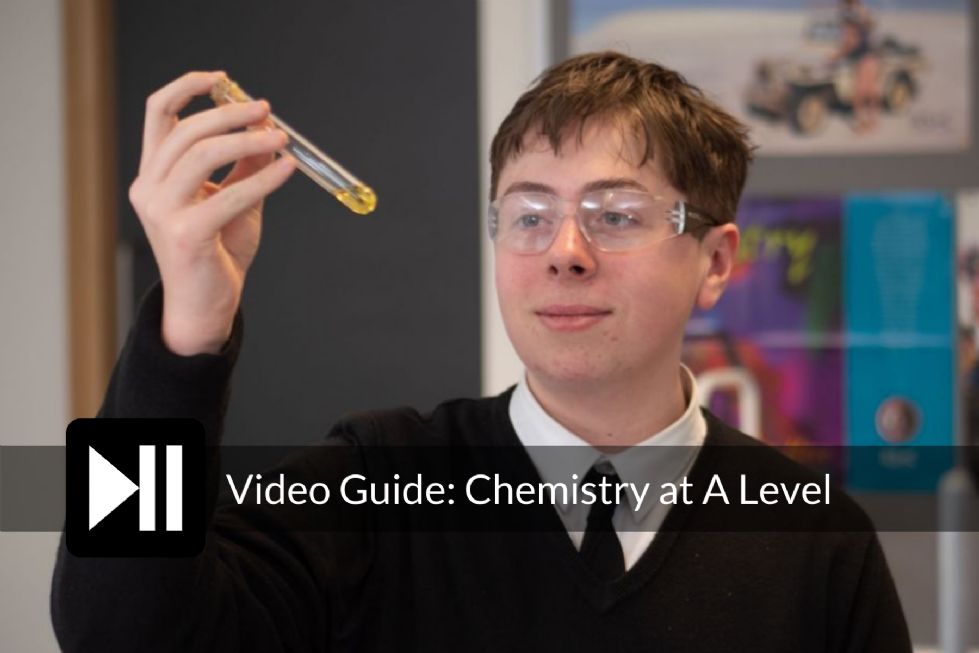Chemistry
Chemistry is the study of all matter from the electron to the largest proteins. It is the source of everything around us from make-up to explosives.
At Kimbolton we have a philosophy of employing practical work as the basis of all our teaching. Pupils get to try as many experiments as they can and we complement these with demonstrations of our own. We broadly follow the national curriculum up to KS3 but extend and diverge from it as we see fit.
We teach Chemistry as a separate science throughout the Senior School.
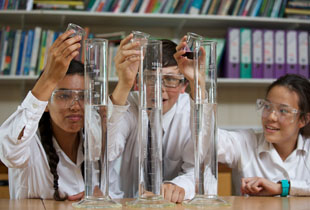
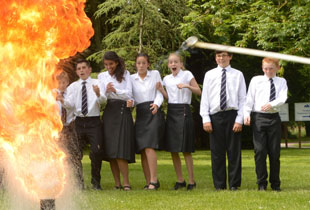
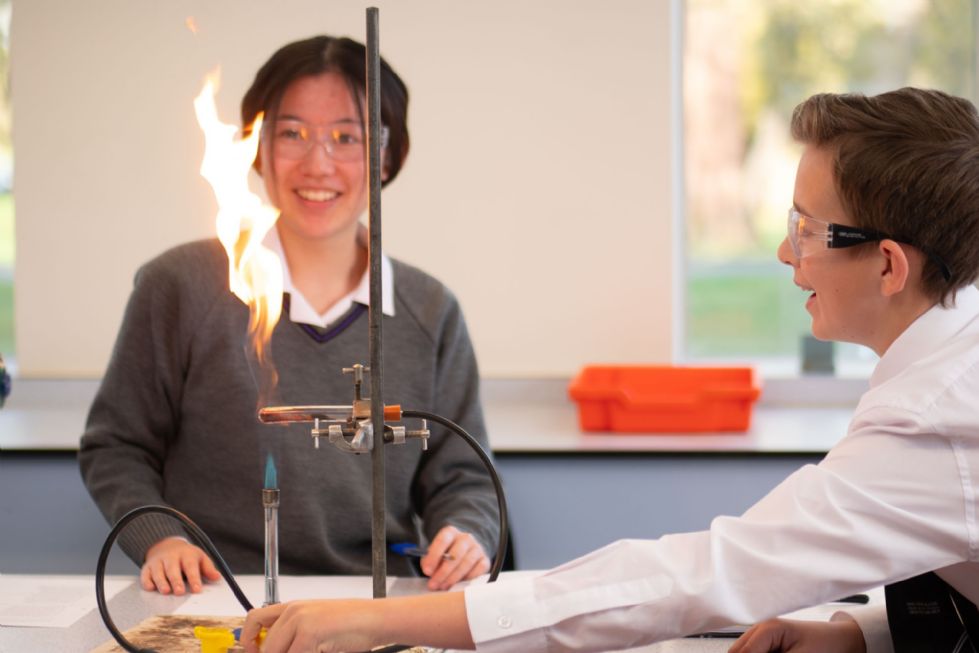
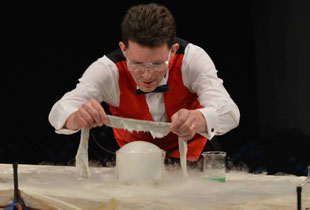
Departmental Staff
Teaching Staff
Curriculum
First to Third Forms – compulsory for all pupils
In the First and Second Forms, pupils study our own bespoke schemes of work which have a highly practical bent. Topics studied include states of matter, chemical and physical changes, chemistry of the atmosphere, acids, alkalis and neutralisation as well as a number of others.
In the Third Form we start the AQA GCSE Chemistry course. Pupils choose whether to continue to study this course or opt for the AQA Combined Science Trilogy during the course of this year.
Fourth and Fifth Forms – optional GCSE subject
- Separate Sciences: AQA GCSE Chemistry (8462). Assessed via two exams.
- Combined Science: AQA Combined Science Trilogy (8464). Assessed via six exams (two each for Biology, Chemistry, Physics). Please see our separate page on Science at GCSE Level to find out more about this option.
Chemistry is the study of all matter from some of the smallest things we know, in sub-atomic particles, through to some of the largest, in the Earth’s atmosphere. In-between we look at industrial, household and theoretical chemistry of all descriptions.
You will learn how atoms, the building blocks of all matter, are formed, interact with each other and cause reactions to happen. Techniques to measure how much of a chemical is needed for a reaction, how fast it reacts, and how much energy it gives can show how to avoid waste and enhance efficiency. Organic chemistry will reveal a vast field of study from crude oil at the refinery to the chemicals in our food, clothes, and homes.
Analytical techniques will lead to an understanding of global heating as well as approaches to reduce your carbon footprint. The use of electricity in manufacturing and industry, as well as its creation from batteries, will show how the 21st Century will need to be powered. All this will come from theoretical and practical studies making you a dexterous, imaginative, and thoughtful student, with a broad set of skills and understanding.
Chemistry is a requirement for many science courses at university, as well as medicine and veterinary studies.
Lower and Upper Sixth Form – optional A Level subject
At A Level we follow the OCR Chemistry A (H432) specification.
Content is split into six teaching modules across two years:
- Module 1 – Development of practical skills in chemistry
- Module 2 – Foundations in chemistry
- Module 3 – Periodic table and energy
- Module 4 – Core organic chemistry
- Module 5 – Physical chemistry and transition elements
- Module 6 – Organic chemistry and analysis
Component 01: Periodic table, elements and physical chemistry - 100 marks - 2 hours 15 minutes - written paper (Component 01 assesses content from modules 1, 2, 3 and 5.)
Component 02: Synthesis and analytical techniques - 100 marks - 2 hours 15 minutes - written paper (Component 02 assesses content from modules 1, 2, 4 and 6.)
Component 03: Unified chemistry - 70 marks - 1 hour 30 minutes written paper (Component 03 assesses content from all modules (1 to 6).)
- View our Sixth Form Prospectus
Regular Trips, Visitors and Competitions
- Lower Sixth pupils compete in the Cambridge Chemistry Challenge which aims to stretch and challenge students interested in chemistry, and will provide an excellent experience for anyone considering taking their studies further.
- Upper Sixth students regularly compete in the Royal Society of Chemistry’s annual Chemistry Olympiad. This is a challenging test of chemical knowledge which also acts as the selection process for the UK’s team at the International Chemistry Olympiad.
Our recent Cambridge Chemistry Challenge winners are:
2023: 3 Gold Awards (Sam, Bradley & Xavier), 4 Silver Awards (Ben, Nathan, Lance & Mark), 8 Copper Awards (Talia, Lucy, Lisa, Matthew, Christian, India, Amaya & Isabella)
2022: 1 Gold Award (Finley), 9 Copper Awards (Max, Alex, Hannah, Harry, Dominic, Henno, Toby & Lucy)
2020: 2 Gold Awards (Andrew, Benjamin) 3 Silver Awards Rishal, Alice, Connor), 6 Copper Awards (Emily, Isobel, Vina, Angus, Jasmine, Christopher)
Our recent Chemistry Olympiad medal winners are:
2023: 1 Gold Medal (Finley), 3 Silver Medals (Alex, Harry & Henno), 5 Bronze Medals (Max, Hannah, Bea, Alya & Georgie)
2020: 4 Silver Medals (Charles, Joseph, Thomas, Laurence), 6 Bronze Medals (Toby, Alice, Nap, Lucy, Thomas, Henry)
2019: 3 Silver Medals (Umar, Harriet, Anushka), 5 Bronze Medals (Nicola, Amber, Felicity, Holly, Rory)
